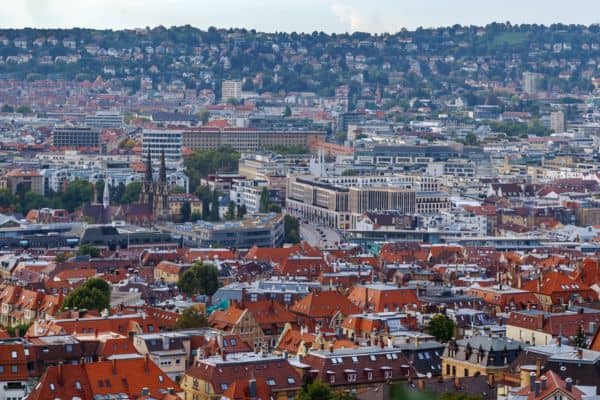Mastering Life in Germany – Understanding German Culture When You Live There

by Hayley
Settling into life in Germany can be an exciting yet challenging experience, especially if you’re unfamiliar with the local culture. Understanding the nuances of German culture is essential for a smooth transition and helps you feel at home in your new surroundings. This guide will provide valuable insights into social etiquette, work culture, language, and everyday life in Germany, ensuring that you can navigate your new environment with confidence and ease.
Germany is known for its strong cultural norms, such as punctuality, direct communication, and a structured approach to both work and leisure. Adapting to these practices is key to integrating successfully and building meaningful relationships with your German neighbours and colleagues. Additionally, the cost of living in Germany can vary significantly depending on the city you choose to live in, with options like Erfurt and Bremen offering more affordable living compared to cities like Munich and Stuttgart.
Learning the German language, even at a basic level, can greatly enhance your experience and help you connect more deeply with the local culture. Whether you’re navigating daily interactions or exploring the rich cultural heritage of your new home, mastering these aspects of German life will make your transition smoother and more rewarding.
If you would like a removal service to Germany, make sure to contact Simpsons International Removals. Let’s delve into how you can make Germany feel like your own comfortable and welcoming home.
1. Living Costs Across German Cities
Knowing the cost of living is essential for anyone planning to move to Germany.
Generally speaking, living expenses for a single person average around €992 (£835) per month, excluding rent. Costs, however, can vary significantly by city.
Munich and Stuttgart are the most expensive cities, with the average rent for a one-bedroom apartment in Munich reaching around €1,398 (£1,177). Berlin, while slightly more affordable, still sees rents around €1,321 (£1,112).
If you’re looking for more budget-friendly options, cities like Leipzig and Dresden offer a more affordable lifestyle. Rent in Leipzig, for example, is over 33% cheaper compared to Stuttgart. Bremen also stands out as an affordable city, being about 30% cheaper than Stuttgart in terms of rent. Choosing a city like Leipzig or Bremen can significantly reduce your living costs without compromising on the quality of life.
2. Embracing German Cultural Norms
Integrating into German society begins with understanding and embracing its cultural norms. Punctuality is highly valued in Germany, both socially and professionally. Germans tend to view being on time as a sign of respect and reliability. This extends to everything from arriving at work meetings to social gatherings with friends.
Another key aspect of German culture is direct communication. Germans prefer clarity and straightforwardness in their interactions. While this can sometimes be perceived as bluntness by outsiders, it’s a reflection of their desire for effective and honest communication. Understanding this can help you navigate conversations and avoid misunderstandings.
Social appreciation in Germany can also take some getting used to. Public emotional expressions are generally uncommon, and instead of clapping, many Germans show appreciation by knocking on the table. Adjusting to these cultural differences can significantly enhance your experience and help you integrate more smoothly into German society.
3. The Role of the German Language
Learning German is crucial for fully integrating into the culture. Although many Germans speak English, especially in larger cities and professional settings, learning German opens up numerous social and professional opportunities. It shows respect for the local culture and makes everyday interactions much smoother.
Fortunately, there are numerous resources available to help you learn the language. Whether through formal courses, online resources, or language apps, there’s something to suit everyone’s needs. These tools can help you build your vocabulary, practice pronunciation, and understand the nuances of German grammar.
Embracing the German language will not only help you in practical terms but also allow you to dive deeper into the cultural fabric of the country. Understanding local idioms, expressions, and cultural references can make your interactions more meaningful and enjoyable.
4. Building Relationships with German People
Building relationships with Germans can be rewarding but requires understanding certain social norms.
Personal space is highly valued, so maintaining a comfortable distance during conversations is important.
This preference for larger personal bubbles can be different from what some might be used to, but it’s a key aspect of social interactions in Germany.
Direct eye contact is an important element of communication. It’s seen as a sign of attentiveness and respect, enhancing the sincerity of the conversation. Coupled with reserved body language, which favours subtle non-verbal signals over expressive gestures, these practices reflect the German preference for clear and respectful communication.
A firm handshake commonly conveys professionalism and mutual respect. Whether you’re meeting someone for the first time or greeting a colleague, this gesture is an important part of social etiquette. Practising these norms helps build strong and respectful relationships with German friends and colleagues.
5. Navigating German Public Transport
The efficient and reliable system makes navigating public transport in Germany straightforward.
Cities like Berlin, Munich, and Frankfurt have extensive networks of buses, trams, and trains.
Tickets for S-Bahn services are often valid for use on buses and trams within the same transport authority.
Public transport operates on an honour system; travellers are expected to have valid tickets, but they are not always checked. Fines for violations can be steep, so always have a ticket. The zone system used for ticket pricing means that fares depend on the areas traveled through, and clear maps and guides are available to help you navigate the system.
Travelling with a bicycle or a large dog requires a separate ticket. Knowing these details can make your daily commute and travel smoother and more enjoyable.
6. Work Culture and Professional Etiquette
German work culture is characterised by punctuality, organisation, and a high degree of professionalism. Being on time for meetings and appointments is crucial since lateness is seen as disrespectful. This emphasis on punctuality reflects positively on one’s work ethic and is integral to German business etiquette.
Besides punctuality, Germans have a strong respect for rules and procedures. Contracts are strictly followed, and the business environment is highly structured. This structured approach ensures clarity and efficiency in professional dealings. Formal dress is the norm in business settings, emphasising neatness and conservatism.
In dining situations, it’s customary for the host to initiate the meal; waiting for them to start is polite. Direct communication, honesty, and clarity help avoid misunderstandings and foster a productive work environment.
7. Enjoying German Food and Drink
Rich and diverse, German culinary culture offers a variety of hearty dishes reflecting local agricultural practices.
Seasonal ingredients are important, with dishes often showcasing what’s locally available. From sausages and pretzels to hearty stews and fresh bread, there’s something for every palate.
Beer plays a significant role in German food culture, both as a staple beverage and a festival highlight. Enjoying a cold beer at a local pub or Oktoberfest, this beverage is deeply ingrained in social and culinary traditions.
Besides beer, Germans enjoy ‘Kaffee und Kuchen’ (coffee and cake) in the afternoons, a tradition highlighting the social aspect of dining. It’s a perfect opportunity to relax, drink coffee, enjoy a sweet treat, and engage in conversation with friends and family.
8. Celebrating German Customs and Traditions
Germany is renowned for its rich history and vibrant festivals celebrating its cultural heritage.
Originating in 1810, Oktoberfest is one of the most famous festivals, attracting millions each year to enjoy Bavarian beer and food.
The festival begins with the ceremonial keg tapping by the Munich mayor and features traditional music, costumes, and hearty Bavarian cuisine.
Karneval, or Carnival, is another major celebration that is particularly vibrant in Cologne and Düsseldorf. This pre-Lenten festival features colourful parades, elaborate costumes, and lively street celebrations. It’s a time of joy and revelry, with deep-rooted traditions that bring communities together.
German Christmas markets, known as Weihnachtsmärkte, are another highlight. These markets, which emerged in the Late Middle Ages, run from late November until Christmas Eve and feature crafts, festive treats, and a magical atmosphere. Unique customs like St. Nicholas Day and the Maibaum add to the rich tapestry of German traditions.
9. Balancing Work and Free Time
Germany encourages a healthy balance between work and free time. New parents can share up to 14 months of paid parental leave, prioritising family time after childbirth.
Sick leave is well-supported, enabling employees to focus on recovery without pressure to return quickly.
Vacation policies are generous, with many Germans enjoying around 30 days off annually. This helps prevent burnout and ensures ample time to relax and recharge. A strong cultural respect for personal time means employees are not expected to check work emails outside office hours.
In their free time, most Germans often engage in social activities with family and friends. The tradition of ‘Kaffee und Kuchen’ exemplifies this, as does the social aspect of dining, which provides an opportunity to unwind and connect with loved ones in everyday life.
Are you looking to relocate to Germany?
Living in Germany offers a rich tapestry of cultural experiences and a high quality of life. From understanding the cost of living and embracing cultural norms to learning the language and building meaningful relationships, each aspect of German life plays an important role in helping you feel at home. Navigating the public transport system, enjoying local cuisine, and participating in traditions will further deepen your connection to your new surroundings.
Germany’s balanced approach to work and leisure, with generous vacation policies and a strong respect for personal time, creates an environment where you can thrive both professionally and personally. By immersing yourself in the culture and embracing all that Germany has to offer, you’ll find that mastering life here is not just possible, but incredibly rewarding.
As you prepare for your move to Germany, let Simpsons International Removals handle the logistics, so you can focus on settling into your new life. We offer a comprehensive door-to-door service, from professional packing to customs clearance and delivery, tailored to meet your specific needs. Ready to start your German adventure? Get an online quote today or visit our container shipping to Germany guide for more information. Your smooth transition to life in Germany begins with us.
Recent Posts

Finding the Best Place to Live in Italy for UK Expats
Friday, 28th March 2025

How To Save Money On Your Move Overseas
Tuesday, 11th March 2025

The Best Places to Live in Australia for Expats in 2025
Tuesday, 4th March 2025








